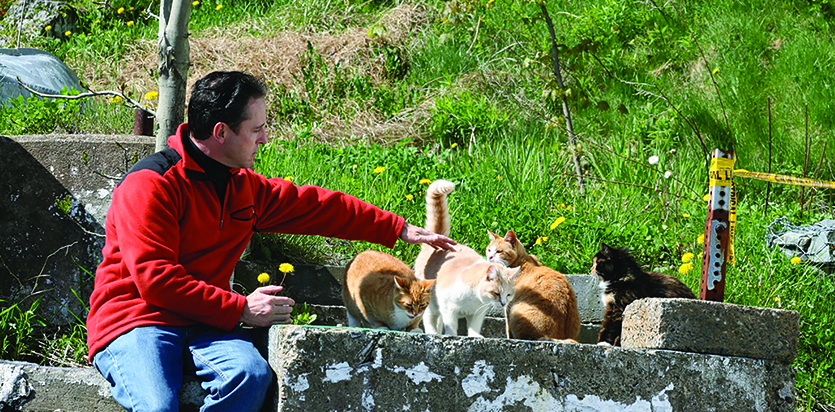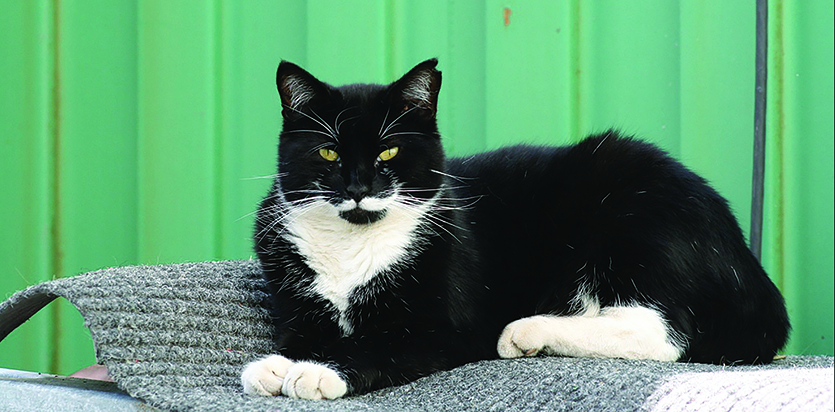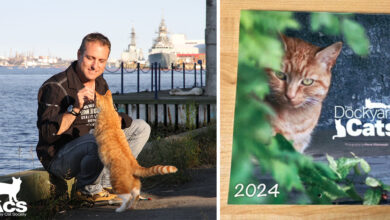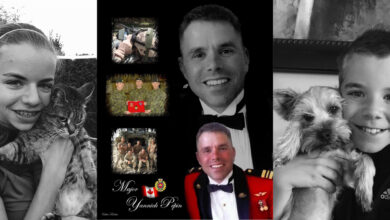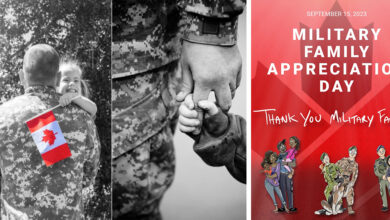CF Families
Sailor establishes a society to protect stray and feral cats in Halifax
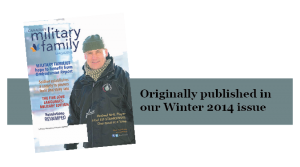 Above image: Piere with members of the Pierre’s Alley Cat Society (PACS) pride.
Above image: Piere with members of the Pierre’s Alley Cat Society (PACS) pride.
In 2005, while working as a member of the Canadian Armed Forces in Halifax, Nova Scotia, Pierre Filiatrault discovered two small kittens living at the HMC Dockyard. There was no sign of the mother, and the kittens appeared ill and in distress. Pierre decided to trap the kittens and take them to a local animal shelter.
Helping Feral and Stray Cats.
Although he was unable to determine what became of the kittens, that act of kindness inspired him to establish Pierre’s Alley Cat Society (PACS), a non-profit organization dedicated to easing the suffering of feral and stray cats.
When asked about the most rewarding part of his work, Pierre’s response is, “Every time I save a cat. That is the reason I do it.”
Incorporated in 2007, Pierre’s Alley Cat Society cares for thirty-five cats at the dockyard and approximately thirty cats elsewhere in the city, using the Trap-Neuter-Return-Care (TNR-C) model, an accepted and humane method of reducing the population of feral cats in a community. If left unregulated, a feral cat colony’s population can quickly escalate, resulting in the animals’ starvation and the spread of parasites or disease, greatly diminishing both the quality of life and life expectancy of the animals. “It doesn’t make any difference to simply remove the cats from the area,” says Pierre. “If one gang leaves, another just moves in.” This phenomenon is referred to as the vacuum effect and can occur in an area that proves to be a viable food source for cats.
Using the TNR-C model, feral cats are humanely trapped, vaccinated, spayed or neutered, and then returned to the place of capture where shelter and food are provided by volunteers. The cats are also “ear-notched” to show–in the event that it is re-trapped– that the animal has already completed the program. As a direct result, the cat population at HMC Dockyards has stabilized. “We haven’t had any kittens born since 2007.”
Feral Cat Colonies HMC Dockyard
The Society is gaining recognition for the establishment and care of feral cat colonies at HMC Dockyard. Two cat shelters have been built: the Saraphyna Shelter at the north end and the Caddyshack at the south end of the dockyard. Both shelters are heated and stocked with a regular supply of water and food (with vitamin supplements). The cats are also regularly de-wormed to ensure the good health of the colony.
PACS has a network of volunteers who assist in facilitating fundraising activities, as the organization is solely funded through resources such as donations, cat sponsorship, and proceeds from the Dockyard Cats calendar sales. “Those are our most popular sources of funding,” says Pierre, who also photographs cats for the calendars. Proceeds from calendar sales are used to fund the costs of food, shelter, veterinary fees and materials, not only for the Dockyard cats but others throughout the region. These calendars can be purchased online for $12, including shipping within Canada.
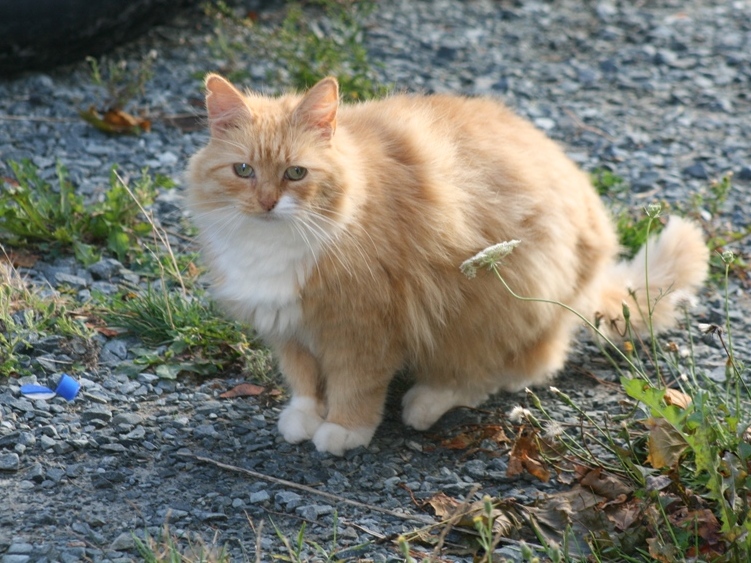
Offers Sponsorship Programs
PACS also offers sponsorship programs for anyone interested in assisting with the costs of caring for these cats. The monthly General Sponsorship fee of $35 covers the monthly associated costs of one cat. Sponsors can also pay an annual sum if they wish. People can choose which Dockyard Cat they would like to sponsor and will receive a sponsorship certificate and a photo of the cat. For youth who are interested, the PACS offers a Junior Sponsorship Program for a lower contribution of $5 a month.
Not only does it provide an opportunity for children to become involved with a worthy cause, but Pierre says, “I think if they’re using part of their own money, like part of an allowance, to help the cats, it can give them a sense of pride and responsibility.” One-time donations can also be made online through the society’s website. As PACS is now a registered Canadian charity, tax receipts are available.
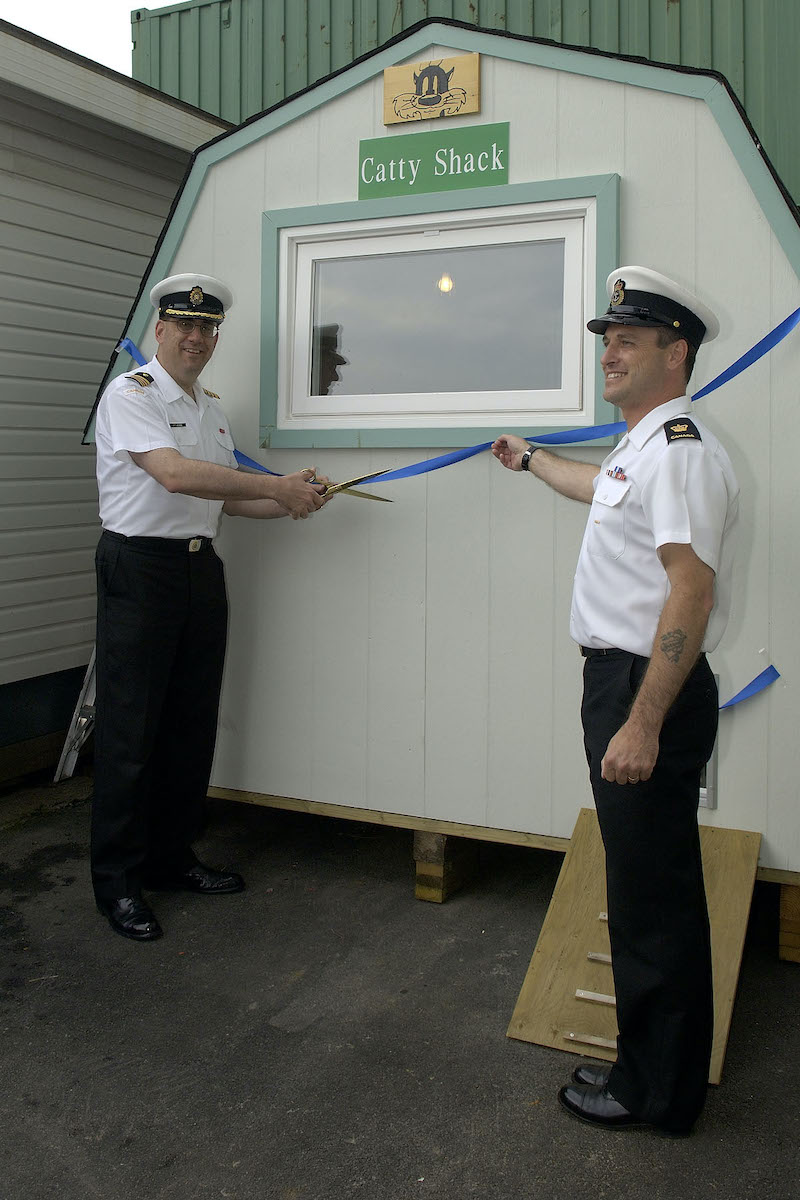
Establish Cat Sanctuary
Pierre would like to eventually establish a cat sanctuary in Nova Scotia called “Castaways,” a working name chosen to reflect the dilemma of feral and stray cats. Once constructed, the sanctuary would provide shelter, food, medical care, and human contact to help facilitate adoptions, as well as provide a home for older cats that are possibly unsuitable for adoption. In addition, a sanctuary would provide an opportunity for the community to take part in programs such as pet visitation, tours, volunteer work and education regarding responsible pet care.
“We’ve got a long way to go yet. I would open it tomorrow if I could.”
In the meantime, though, Pierre remains passionate about the care and humane treatment of feral cats, despite the challenges he faces. The lack of resources can be frustrating at times. “People call us for help with stray cats in their yards. We help trap the cat and take it to the vet, but it’s very expensive.” He also admits that it can be quite stressful when faced with issues regarding transmittable or terminal feline diseases. “It’s difficult, always being the one to have to make those decisions.”
Fortunately, there is something to help keep PACS going. When asked about the most rewarding part of his work, Pierre’s response is, “Every time I save a cat. That is the reason I do it.”
Please visit Pierre’s Alley Cat website for more information.


